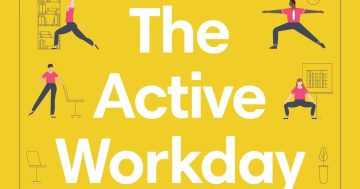Marc Lou* says we should all have jobs we love — but we should also have enough time for family, friends and all the things that help us live a full life.
 Have you ever wondered why you are bringing so much work back home?
Have you ever wondered why you are bringing so much work back home?
We all have personal lives, and our work lives shouldn’t be brought home.
Ask yourself these questions.
Do you check your emails shortly after waking up?
Do you skip lunch or make it very short to get more work done?
Do you work longer in the office or at home and lose track of time?
Is your mind always filled with tasks and you struggle to fall asleep?
Do you feel guilty hanging out with friends instead of working?
If these sound familiar, you are bringing work to different aspects of your life where it shouldn’t be.
By learning how to detach from work emotionally, you will live in the present without feeling guilty and stressed.
First, we must understand where the work guilt anxiety comes from.
Every action you undertake in the office has direct consequences: You could be promoted; you could be terminated; you could relocate to a new location.
Because there is a lot at stake and you are directly responsible for the outcomes, your work is eating a good chunk of your time.
Most people experience this, but it doesn’t have to be that way.
Unlike a workout session where you have to stop because your muscles are exhausted, it’s more complicated to find the limit with your work.
Your brain muscle is more subtle, it doesn’t suddenly say stop; there will always be more work to be done and demands from the workplace can pile up.
Without proper work boundaries, you’re missing out on the other important aspects of living a full life.
Breaking from work guilt anxiety is never easy, but you can still manage your habits and if you’re willing here’s how to disconnect from work stress.
Exercise regularly
The fastest way to disconnect is to preclude you from thinking about work. Exercising is an excellent way to do so while keeping you in shape.
Do at least a short workout at home or an intense workout, perhaps in the gym.
Working out for 20 minutes is the sweet spot. It does not require much willpower and it’s enough to break free from unexpected work thoughts.
Create spatial boundaries
Our mind associates physical spaces with an activity. The more we engage in specific activities in specific places, the more likely our minds can create spatial boundaries.
When you work over your laptop in the office all day, your brain creates the ‘office is for working’ link.
If you’re working from home, make sure to create a space to work.
Separate your workspace from the rest of your personal life so that when you get out of your home office, you’re done with work.
Distract your neurons
Work guilt anxiety is mostly happening in your mind.
It’s sticky and follows you wherever you go. Sometimes, the best way to turn the voice off is to be too busy to think about it.
Schedule activities that require mental attention like going to dinner with an old friend, hiking, swimming, fishing, or any other outdoor activity — or play your favourite video game.
Change your clothes
Our mind associates clothes with an activity. Different physical activities require different kinds of clothing styles.
This is the same with work and personal lives.
A common tip to get the motivation to exercise is to wear your workout clothes. Once you wear it, you usually go for it.
If you wear your biking attire, chances are you’ll grab your bike.
Use this hack to disconnect from work. When you come back home or end your day if you’re working from home, change your clothes and wear something comfortable.
Learn the mantra: ‘Not my problem’
There is so much happening on a typical day of work.
These often stressful events nourish your brain with anxiety and make disconnecting from work even harder.
In reality, a majority of those events are just noise. It doesn’t impact your long-term goals and should be ignored.
Identify a stressful event. If it’s not critical, consider saying: “Not my problem,” and move on.
Struggling to disconnect from work is a good sign and everyone should practice doing quality work.
It shows involvement, fulfilment, and dedication to hard work.
However, work isn’t everything. Family, relationships, mental strength, spiritual wellness, and psychical health are the other pillars to live a full life.
By learning how to disconnect from work, you will stay present and enjoy every other aspect of life.
*Marc Lou began work as a software engineer after graduating but quickly realised it was not for him. He moved to Bali in Indonesia and in the past 10 years has built more than 20 start-ups on the internet.
This article first appeared on the Livehack website.











